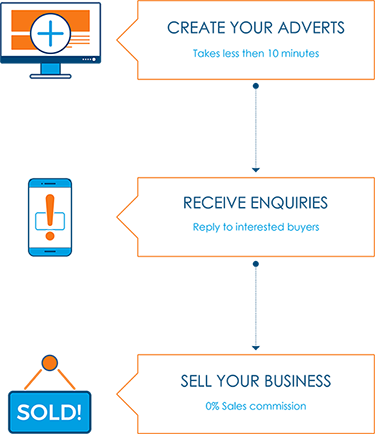Get a clear definition of what Stock at Valuation – or SAV – means

When looking at businesses for sale, you’ll often come across the abbreviation SAV – which stands for Stock at Valuation. But what exactly does SAV, or Stock at Valuation really mean? Put simply, it is a price – or value – put on the stock held by that business at a given time. Typically, the stock is valued just before concluding the sale of a business. And that figure – the valuation of the stock – is used to determine the final sum being paid by the vendor to the seller of that particular business.
What Stock at Valuation means is all in the timing
So why is SAV calculated separately to the valuation of the business itself? Well, part of it is about the timing. And what value can be attributed to that stock at any one time.
Let’s say, for example, that you are negotiating on two different clothes shop that you’re keen to buy. The clothes stocked in shop A are largely made up of this year’s hottest fashion items and, thus, still in high demand. Whereas in shop B, they’re largely leftovers from several seasons back. Clearly the value of the stock in each clothes shop would be quite different, and that will have an impact on the final price paid for each business.
SAV means paying the right price for that stock
Those same variations in SAV should apply with businesses that stock perishable items, such as restaurants, bars, butchers, bakers and pretty-much anything in the food and beverages sector. Stock at valuation in the transfer of business of this type would be determined by the expiry, or sell-by, dates of the goods on the shelves.
So, you can see why giving the stock an exact valuation will depend on the timing of the business transfer. And that SAV must take into account what you, as the new owner, can sell that stock for. Time it right, and pay the right price of course, and you will make a profit on that stock. Get it wrong, though, and overpay for out-of-date items, then you’ll be burdened with stock that can’t be sold.
Why SAV must be a separate valuation
There’s another good reason why SAV should be calculated separately from the business itself. And that’s because, when you are buying a business, you are really buying its trading history, its goodwill and an opportunity to match or surpass its existing revenues. As a buyer, then, you should be more interested in a business’s sales, overheads, margins and profits than the stock itself. That’s not to say the stock isn’t important, but it is just a moving part that won’t determine the future success of that business.
Who places a value on that stock then?

Valuations in any business transfer are best left to the experts – and you can find plenty of independent valuers who specialise in SAV. There are also some guidelines online that can help you to determine what a business is worth.
The simplest way to undertake a stock valuation, though, is to list all items at their cost price – which is the amount the current owners paid for those items from the wholesalers, manufacturers or suppliers.
But should you pay the cost price if those items are diminishing in value?
In short, no. But it will depend on the stock items themselves, and how quickly they date or become unsaleable. The resale value of any stock is, again, determined by their useable sell-by date. And, if their value is diminishing, then a figure based on depreciation will need to be met – a calculation that can be made by a professional valuer or business transfer agent.
So, while determining SAV might not be totally straightforward, it is clear that you need to have an idea of the stock’s value at the time you are ready to complete. It’s the only way you will end up paying a fair price for the business – including its stock.
For more advice on buying and selling businesses – including valuations – Daltons Business has published dozens of useful articles. Happy reading!



